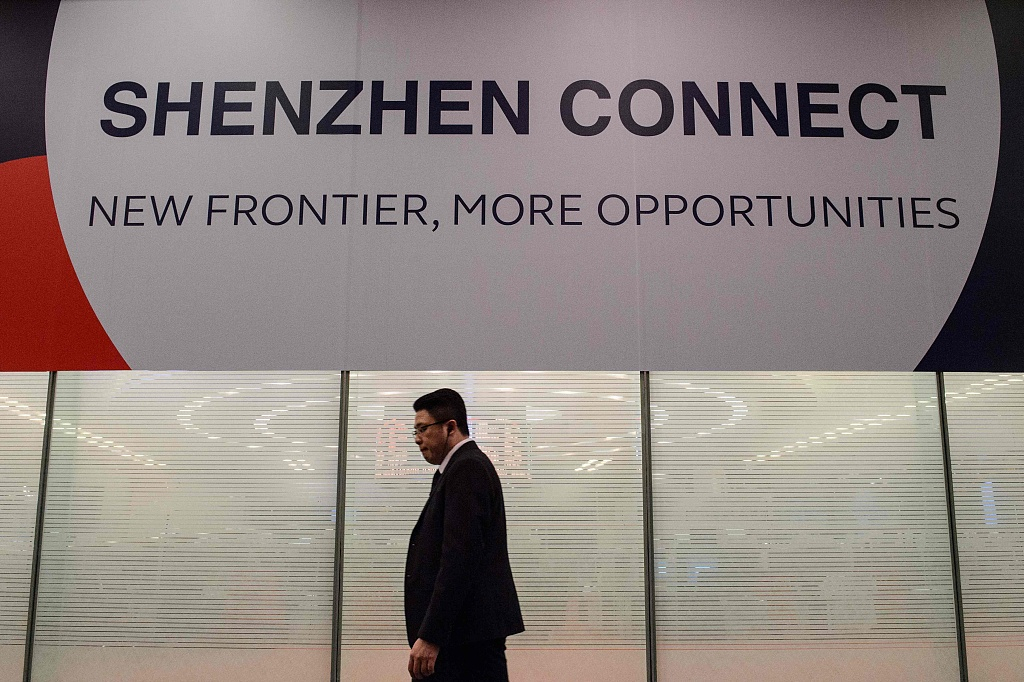
Editor's note: David Lee is a consultant and author based in Beijing who focuses on energy, health, international politics and international development. The article reflects the author's opinions, and not necessarily the views of CGTN.
A statement by the Monetary and Foreign Exchange Authority of Macao (AMCM) over the past weekend has reignited discussions about the nascent security exchange to be created in the Macao Special Administrative Region.
According to AMCM, the local regulator had authorized global consultancies to conduct a feasibility study on setting up a yuan-denominated securities market and relevant work was being conducted in an orderly manner.
In a parallel development, He Xiaojun, director of the Guangdong Local Financial Supervision and Administration Bureau, told a forum on October 12 that a plan to establish the Macao securities exchange had been submitted to the central government.
Though there is no definitive timetable for the launch of the Macao-based bourse, it can be easily envisaged that three security exchanges will operate in the Guangdong-Hong Kong-Macao Greater Bay Area in the future, namely, the two established exchanges in Hong Kong and Shenzhen plus the new bourse in Macao.
An apparent concern about "market crowdedness" can be easily mitigated if the new Macao bourse is cleverly positioned to complement the established exchanges in Hong Kong and Shenzhen.
Though details are not available about the submission to China's central government, broad understandings are emerging that the Macao exchange might provide a new bond-issuing option with a focus on potential investors from Portuguese-speaking and European countries.
On top of bond issuance, and perhaps even more importantly, experts are suggesting a NASDAQ-style offshore yuan market. That is to say, companies to be listed in the new bourse will mainly be technology startups.

A banner in front of the stock exchange trading floor (back) after an event to mark the start of the Shenzhen-Hong Kong Stock Connectm, December 5, 2016. /VCG Photo
A banner in front of the stock exchange trading floor (back) after an event to mark the start of the Shenzhen-Hong Kong Stock Connectm, December 5, 2016. /VCG Photo
It must be said that, even with the launch of the Sci-Tech innovation board (or the STAR Market) and continuous stock market reform in China, local tech startups still have huge financing needs.
While the strategic path towards bond issuance and tech startup financing seems clear even as the feasibility study is still under way, Macao definitely has a lot to learn from more established players as it embarks on an ambitious journey to fill in a financial gap in the Greater Bay Area.
After all, though Macao is known for its liberal economy and free capital flow, it is in fact better known for its gaming industry, and the mechanisms for a mature financial market does not exist.
To make the transition from zero to one for Macao to actually cultivate a robust bourse that satisfies both financing and investing needs, several considerations are needed as follows:
The Macao bourse should maximize its late-mover advantage, particularly by offering the best information technology infrastructure.
Neighboring Hong Kong exchange has been ridiculed by traders for its unfriendly, outdated trading mechanisms, despite its renowned status as Asia's financial center. On top of streamlined trading mechanisms backed by modern technology, the new infrastructure of Macao should also support transparency.
In all, even though the Macao exchange arrives late, it has every reason to come with state-of-the-art technologies available to ensure streamlined, transparent trading.
When talking about a NASDAQ-style exchange in Macao, the focus of the debate is not merely providing an additional IPO destination for emerging Chinese mainland tech players other than the STAR Market, but it is more about the cultivation of a robust startup ecosystem.

The Nasdaq Market Site ahead of the company's IPO in New York, U.S., July 26, 2019. /VCG Photo
The Nasdaq Market Site ahead of the company's IPO in New York, U.S., July 26, 2019. /VCG Photo
Therefore, the regulators must work to enhance the appeal of Macao to all stakeholders, particularly key support organizations like incubators, accelerators, co-working spaces, etc.. Even research organizations and service providers (in legal and financial areas in particular) help.
Therefore, Macao must have an overall, systemic approach to comprehensively and strategically enhance its posture as a credible go-to financial center for tech start-ups.
Last but not least, capacity building is of utmost importance. Given that Macao does not have the "tradition" of having a bourse means it lacks the necessary human talents. Regulatory and professional talents will be in high demand as the zero to one transition starts.
Now, some additional thoughts on the context of the expected launch of the Macao exchange. This year marks the 20th anniversary of Macao Special Administrative Region. The time is ripe for Macao to diversify its economy from the gaming industry, particularly given the strategic opportunities present within the framework of the Greater Bay Area.
Notably, the ideation for Macao to grow into a new offshore hub as part of the internationalization process of the Chinese yuan was launched last year. It's frivolous to suggest that the expected new financial role of Macao is being used to send out an admonishing signal to Hong Kong in light of current disturbances in Asia's financial center.
From the very beginning, the positioning of the Macao exchange has been to complement existing, established players, i.e., Hong Kong and Shenzhen, while answering unsatisfied financial needs home and abroad. I am confident that the Macao bourse will add to the exciting dynamics already set in pace in the Greater Bay Area, and I look forward to see more updates from Macao as the image of the new bourse becomes clearer.
(If you want to contribute and have specific expertise, please contact us at opinions@cgtn.com.)